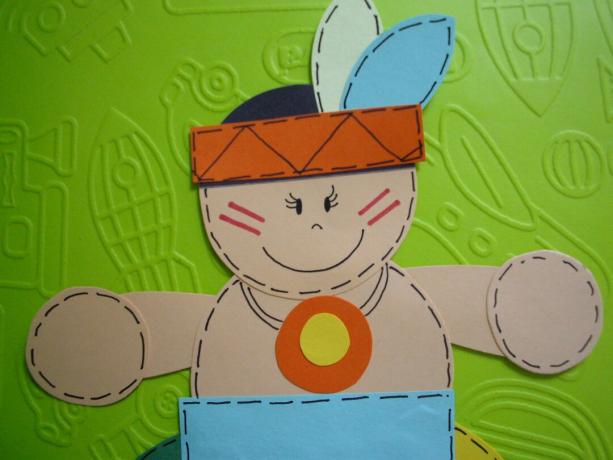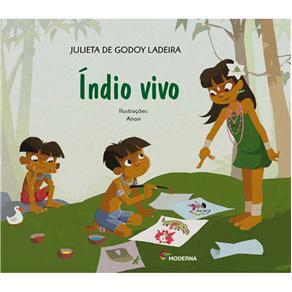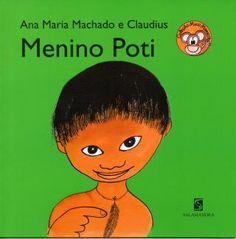is looking for a Indian Day Project for Elementary Education? You're in the right place! In this post we will share with you some tips and ideas for the development of your indian day project, in addition to ready-made templates.
April 19th in Brazil. is celebrated annually the Indian's day. This important date serves to remember and reinforce the identity of the Brazilian and American indigenous people in current history and culture.
During the Indian Day week, schools and other cultural and educational institutions encourage children and young people to learn about the different cultural practices of the indigenous people. And the projects that we are going to share with you are great suggestions, check out:
Index
Indigenous Day Project for Elementary School - Maternal to 2nd Grade
The theme allows the student to perceive other social groups, helping them to build their identity, in the acting with the other group in social life, in preserving the environment in which they live and in the construction of values.
We also recommend: Indian Day Activities to print
Material prepared by the Mahatma Gandhi State School for Elementary and High School students – Multidisciplinary team 2013.

Indian Day Project for Elementary and High Schools
Law 11,645 added the mandatory teaching of indigenous culture and history to Law 10.639, of 2003, responsible for inserting Afro-Brazilian and African history in school curricula. The intention is to make indigenous and Afro-Brazilian issues addressed in disciplines such as Art Education, Literature and, of course, History of Brazil.
It is essential to recognize the importance of indigenous peoples for the construction of Brazilian identity. Despite being few in the country today, the indigenous people greatly influenced the culture of all Brazilians. The heritage of indigenous cultures in our culture is present in our daily lives with their habits, customs, beliefs, vocabulary, techniques, food, etc. However, this rich culture has been forgotten or treated with prejudice.
Preserving indigenous history is keeping part of the history of the Brazilian people alive. And it is important to recognize Brazil's cultural origins in a pedagogical way. Ensuring these themes in basic education allows for learning based on respect and appreciation of different cultures. Aiming to know and value the indigenous people and their culture, the Multidisciplinary Team prepared this project.
The project will be developed through research, exhibition of murals, indigenous handicraft items and the telling of legends.
Project development:
The month of August was chosen to address this issue in view of the commemoration of the International Day of Indigenous Peoples (August 9th). An exhibition was set up in the school's library with photos of the daily lives of the Indians in Aldeia de Marrecas; Turvo region, posters with indigenous vocabulary and their meanings, indigenous legends and activities and works that the students of the Mais Educação Program did. These are messages in defense of the Indians, drawings, collages and texts.
Books dealing with the indigenous subject were made available at the exhibition and attracted the students' attention, especially those dealing with the history of Guarapuava and the legend of the Guairacá Indian. A panel with images of indigenous cuisine was presented to the students, however, what most caught the attention of visitors was the exhibition of indigenous handicrafts: baskets, baskets, bows, arrows, rain stick, sound instruments and handicrafts in general were the highlights of the exposure. All this to the sound of tribal music and typical of indigenous culture.
Another moment that also caught the students' attention was the telling of legends. A volunteer teacher dramatized the “legend of the day and night” with great creativity, using artifacts with sounds and various materials. On that day, a special snack was served: hominy, a typical indigenous dish. At the end, everyone received souvenirs with messages that value indigenous culture.
See more:


Indian Day Project for Elementary Education
According to the PCN, it is necessary for the student to know and value the plurality of Brazilian sociocultural heritage, as well as sociocultural aspects of other peoples and nations, positioning itself against any discrimination based on cultural differences, social class, beliefs, sex, ethnicity or other individual characteristics and social.
This project aims to awaken children to the importance of valuing indigenous culture. It is important that children discover that, after all, there is no single way to live, feel, eat and speak and that a large part of our habits today are heritage of the indigenous culture which is an integral part of our roots. In contact with the indigenous universe, we will also take an important step to move away from prejudices towards those who seem different to us in addition to giving the little ones the opportunity to better see the characteristics of our own culture.
When the student comes into contact with the content in a pleasurable way, he can develop better in the teaching-learning process, or that is, it ceases to be a passive student to become a participatory, critical-reflective student raising hypotheses in relation to the object of study.
Thus, the school has a fundamental role in bringing the student to the knowledge of the main cultural manifestations existing in their environment, relating to them in a respectful way. In this way, it is up to the school institution to address this theme, providing relevant information to its students so that they can expand their knowledge.
"The achievement of the necklace"
The class divided into 4 teams must answer questions, by drawing lots, on a subject already taught in class. For each correct answer, the team will receive material to make the necklace (pieces of string or nylon thread and assorted beads, which must be the color of each team – up to 8 beads per student).
Questions
See too:

Indian Day Project for Elementary and Early Childhood Education
This one Indian Day Project for Elementary and Early Childhood Education, that we will make available below was prepared by professor Valéria Tavares and It belongs to her wonderful blog:www.ensinandocomcarinho.com.br
The commemorative dates must be worked interdisciplinary in class. The Indian's Day is a special date that is always widely explored among children, making them know and value the plurality of Brazilian sociocultural heritage, in addition to cultural differences, the different peoples. Working the day of the Indian is rescuing our history and our roots. The project helps students to understand and build their identity and perceive themselves as an integral part of a society full of unique characteristics, values and cultures.
Others in: Gift Ideas and Templates for the Indian Day


Subscribe to our email list and receive interesting information and updates in your email inbox
Thanks for signing up.